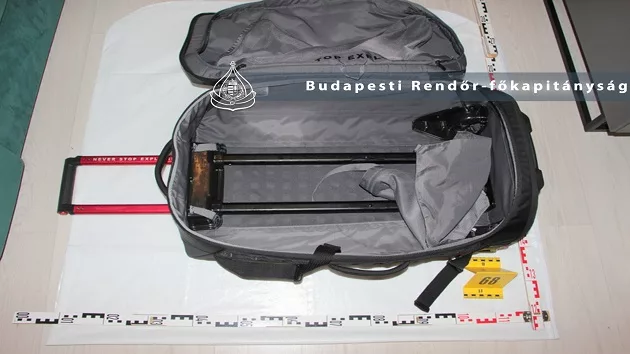
(WASHINGTON) — A day after the Hamas-led Gaza Health Ministry claimed Israel had attacked the Al Ahli Arab Hospital in Gaza City, saying some 500 Palestinians had been killed, Israeli and U.S. officials, explosives experts and President Joe Biden said Wednesday available evidence shows the destruction was caused instead by a failed Palestinian terrorist rocket launch.
“Based on the information we’ve seen today, it appears the result of an errant rocket fired by a terrorist group in Gaza,” Biden said during his visit to Israel.
While Israeli officials denied involvement in the hours after the incident — later claiming it could prove as much by declassifying intelligence — Biden said he based his conclusion on “data” provided by the U.S. Defense Department.
The Pentagon independently concluded the Gaza hospital blast was likely caused by a Palestinian Islamic Jihad (PIJ) rocket that fell short of its target, two U.S. officials told ABC News.
National Security Council spokesperson Adrienne Watson said the U.S. based its preliminary assessment on “overhead imagery, intercepts and open source information.”
“Intelligence indicates that some Palestinian militants in the Gaza Strip believed that the explosion was likely caused by an errant rocket or missile launch carried out by Palestinian Islamic Jihad,” Watson said, adding that the U.S. is still working “to corroborate whether it was a failed PIJ rocket.”
“We saw the cost of this terrible war crime yesterday when a rocket fired by Palestinian terrorist misfired and landed in a Palestinian hospital. The entire world was rightfully outraged, but this outrage should be directed not at Israel but at the terrorists,” Israeli Prime Minister Benjamin Netanyahu said during his meeting with Biden.
Experts who analyzed the explosion and its aftermath for ABC News also disputed the notion of an Israeli strike.
“The explosion itself offers some evidence,” said ABC News contributor Steve Ganyard, a former State Department official and Marine Corps fighter pilot. “What we see is a big fireball. That’s what you usually see out of a rocket or something where the residual fuel is still burning, not from high-explosive ordnance.”
An Israeli air or artillery strike would be more likely to result in a visual plume of dust and dirt rather than a fireball, he said.
After reviewing nighttime video of the explosion, Ganyard said, “What’s unique about this video is not the visuals. It’s the sound because what we hear is the sound of the high speed rocket. This is not the sound of ordinance that’s dropped from an airplane. This is not the sound of an air strike. It’s something moving very very fast.”
“From the video released publicly, the explosion is consistent with a rocket that still had a lot of rocket fuel at the time of impact,” said Mick Mulroy, an ABC News national security analyst who previously served as deputy assistant secretary of defense for the Middle East, a CIA officer, and a U.S. Marine.
Drone footage of the aftermath does not appear to show a large crater, which would be expected with a surface-detonated Israeli bomb or missile, according to Eric Oehlerich, an ABC News contributor and retired Navy SEAL. Nor does the footage seem to show pock marks on the hospital walls from fragmentation, as would be expected from an Israeli air-burst weapon, he said.
“The main post-explosion signature is that of fire, all of the cars are burned,” Oehlerich said. “This is consistent with a rocket full of fuel that has been knocked out of a straight-line trajectory.”
Ganyard agreed with that assessment.
“The burned out cars are also evidence. If it were a high-explosive airstrike, it would create a giant crater and those cars would be blown out of the square. But what we’re seeing is burned out cars, and we’re seeing a puncture mark which suggests a rocket and residual fuel causing a fire that burned those cars out but did not destroy them,” he said.
Copyright © 2023, ABC Audio. All rights reserved.








